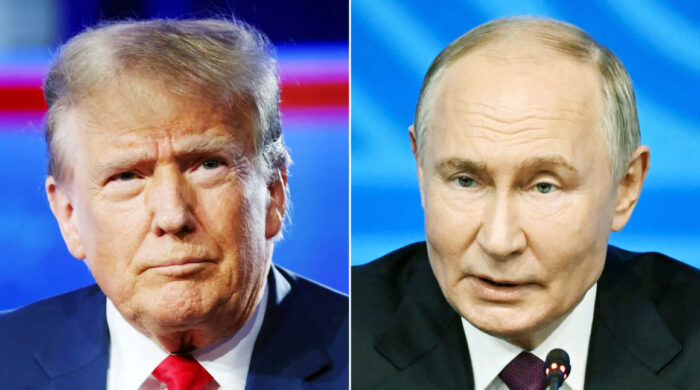
The dynamics of the transatlantic relationship between the US and Europe are undergoing a significant shift largely influenced by Donald Trump’s policies and approach. Two key events on Wednesday highlight this transformation: Trump’s conversation with Vladimir Putin and a visit by US Defense Secretary Mark to Brussels where he addressed European allies.
Trump’s call with Putin, which aims to find a resolution to the war in Ukraine marks a turning point. In their discussion they agreed to swap presidential visits signaling a return of Russia into the fold. Trump’s America First stance is evident particularly as he emphasizes viewing alliances through a financial lens. He challenges the traditional Western foreign policy approach which has long seen the US as the protector of Europe from external threats.
This new era brings with it a fundamental shift in expectations. Trump has openly questioned whether the US should continue to defend NATO members who aren’t investing adequately in their own defense a sentiment that aligns with historical concerns about America’s involvement in European security.
The US has historically played a key role in securing Europe’s safety particularly after both World Wars and during the Cold War. However Trump has consistently advocated for Europe to take on more responsibility particularly in terms of military spending. This is a direct challenge to the European model which has prioritized social welfare over defense investments. Trump’s stance is reflected in the comments made by US officials who argue that Europe should prioritize its defense spending or risk growing dependence on the US.
NATO’s structure designed for a 20th-century geopolitical landscape is increasingly being scrutinized under Trump’s leadership. His approach to foreign relations suggests a new era of big-power diplomacy where the US expects Europe to shoulder more responsibility. Meanwhile Trump’s relationship with countries like Canada and Mexico as well as his praise for leaders like Putin and China’s President Xi Jinping, signals his belief in strong, transactional leadership rather than a multilateral approach.
Europe’s security concerns are also taking a backseat to broader global challenges particularly with the rising power of China. Secretary of State Marco Rubio recently highlighted the need for Europe to make a tough choice fund defense or continue relying on the US. The European social welfare model which many European nations have prioritized now faces pressure to allocate more resources to national defense.
This shift in priorities was particularly evident during Trump’s statements on the war in Ukraine. Trump has signaled that negotiations to end the war could begin shortly with Russia playing a central role. Ukrainian President Volodymyr Zelensky was not initially part of the conversation, raising concerns about the US sidelining Ukraine in peace discussions. Trump’s remarks suggested that Ukraine’s pre-2014 borders would not be restored and that NATO membership for Ukraine was off the table. The US would not send troops to safeguard Ukraine, leaving the responsibility to European and non European forces instead.
Europe is concerned about these developments, particularly as they could signal a shift in US support for Ukraine’s territorial integrity. There are fears that Trump’s desire for a quick resolution might lead to a peace deal that could favor Russia setting a concerning precedent for the future of international diplomacy.
The European response to Trump’s strategy is clear: European nations and leaders are adamant that any peace negotiations must involve Ukraine and that a fair resolution is crucial for the security of the transatlantic relationship. Historical parallels have been drawn to the appeasement of Nazi Germany with critics arguing that Trump’s approach could lead to disastrous outcomes for Europe.
Despite these concerns, the framework for a potential solution is already being discussed in private circles both in Washington and European capitals. The idea of partitioning Ukraine with the western part possibly joining the European Union is being explored. However this solution would come with a bitter historical irony as it could effectively create a new East Germany in the heart of Europe with US involvement facilitating Russia’s control over part of Ukraine.